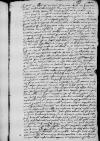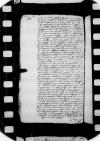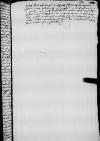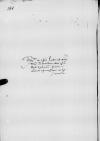List #2119
Ioannes DANTISCUS do Tiedemann GIESEHeilsberg (Lidzbark), 1539-03-19
Regest polski:
Dantyszek, zapoznawszy się z przesłaną mu przez Giesego kopią listu rady Gdańska do króla [Zygmunta I], uspokaja adresata: odmienność stanowiska rady od ich własnego nie niesie żadnego zagrożenia, a nawet może przyczynić się do pozyskania przez Giesego łaski króla.
Dantyszek przedstawia swoje działania w sprawie zgorszenia, jakie powstało w jego diecezji i kapitule za sprawą Aleksandra [Scultetiego].
W rozmowie z Aleksandrem omówił szerzące się pogłoski o zawarciu przezeń małżeństwa, potomstwie, braku święceń kapłańskich oraz panującej na jego temat opinii ateusza i sakramentariusza.
Wezwany przez Dantyszka do oddalenia nierządnicy i potomstwa, Aleksander obiecał podporządkować się żądaniu, jeżeli to samo uczynią inni [kanonicy: Leonard Niederhoff i Mikołaj Kopernik]. Konkubina jednego z nich [Niederhoffa] już nie żyje, drugi zaś [Kopernik] obiecał, że spełni żądanie, jeżeli nie przeciwstawi mu się Aleksander, ten jednak postępuje tak, jak gdyby Dantyszek nie posiadał jakiejkolwiek jurysdykcji w sprawach duchowych. Dlatego też Dantyszek użył wobec niego swojej władzy sądowniczej i nie zaniecha żadnych zgodnych z prawem środków; jeżeli więc dojdzie do procesu, udowodnione zostaną szaleństwo Aleksandra oraz uprawnienia Dantyszka.
Biskup spodziewa się, że Giese, rozważywszy sprawę, nie poprze wznowienia procesu, które dałoby Aleksandrowi wolność, by dalej grzeszyć. Jeśli jednak trzeba będzie prowadzić proces w Rzymie, Dantyszek jest pewien wsparcia króla, episkopatu, a także Boga, którego błaga o rozum dla Aleksandra.
Szczególnie bulwersuje Dantyszka życzenie Aleksandra, by jego konkubina mogła zamieszkać w wybudowanym ze środków kapituły domu, zwolnionym po śmierci Feliksa [Reicha]. Miałoby to być sposobem (pozornego) oddalenia konkubiny.
Dantyszek nie podziela obaw Giesego, że zastosowanie wobec Aleksandra cenzur kościelnych zakłóci święty czas [Wielkanocy] i może zaszkodzić Kościołowi. W jego opinii pobłażanie skandalom przyniesie Kościołowi jeszcze większe zgorszenie. Dantyszek zaznacza, że nie kieruje się goryczą, ale bojaźnią Bożą, sumieniem i powinnością. Uważa, że nie wolno tolerować działalności szkodliwej dla duszy ze względu na związki przyjaźni lub czyjeś zasługi. Prosi adresata, by list ten odebrał jako szczery i przyjacielski.
Poseł księcia [Albrechta Hohenzollerna] dostarczył właśnie Dantyszkowi list Giesego zawierający kopię odpowiedzi Giesego na list książęcy. Dantyszek zamierza odpowiedzieć księciu w tym samym tonie.
Życzy Giesemu szczęśliwej drogi do katedry [chełmżyńskiej]. Obawia się, że gdyby w obecnej sytuacji celebrował Wielkanoc w swojej katedrze, prawdopodobnie żaden z kanoników nie zechciałby mu towarzyszyć.
Dantyszek przekazuje świeżo otrzymane nowiny o nominacji Samuela Maciejowskiego na podkanclerzego i o wyprawieniu posłów: [Jakuba Wilamowskiego] do sułtana [Sulejmana Wspaniałego], [Andrzeja Tęczyńskiego i Jana Wilamowskiego] do króla rzymskiego [Ferdynanda Habsburga] oraz [Hieronima] Łaskiego do elektora brandenburskiego [Joachima II Hektora].
Dantyszek przesyła Giesemu poemat [Carmen paraeneticum ad Constantem Alliopagum], który niedawno napisał, prosząc o poprawki. Inspiracją był dedykowany Dantyszkowi epigramat napisany przez Giesego za pontyfikatu Fabiana [Luzjańskiego].
Rękopiśmienne podstawy źródłowe:
Publikacje:
| ||||||||
Tekst + aparat krytyczny + komentarz Zwykły tekst Tekst + komentarz Tekst + aparat krytyczny
Reverendissimo in Christo Patri et Domino, domino
Reverendissime in Christo Pater et Domine, frater et amice carissime ac honoran(de) or honoran(dissime)⌈honoran(de)honoran(de) or honoran(dissime)⌉.
Salutem et fraternam commendationem.
Heri ex Reverendissimae Dominationis Vestrae cf.
In negotio domini
Deinde et seorsum multa in iis non nisi paterno affectu et animo cum domino
Ad ea, ut
Ceterum causa Dei, quam tueri sum astrictus,  BCz, 245, p. 152
vel per unum iota respondere dignatus est.
BCz, 245, p. 152
vel per unum iota respondere dignatus est.
Si ad
Porro, quod Dominatio Vestra Reverendissima putat, censuris, si processerint, haec sacra tempora affligantur hidden by binding⌈[antur]antur hidden by binding⌉ et quod rei turpitudo a personis in ecclesiam possit derivari etc., non satis intelligo, cum alio gladio mihi uti non liceat, quam hoc ecclesiastico, ut cf. Vulg. Ez 17.9 Dic: Haec dicit Dominus Deus: Ergone prosperabitur? nonne radices eius evellet, et fructus eius distringet, et siccabit omnes palmites germinis eius, et arescet, et non in brachio grandi, neque in populo multo, ut evelleret eam radicitus?; Vulg. Io 15.4-5 Manete in me, et ego in vobis. Sicut palmes non potest fere fructum a semetipso, nisi manserit in vite, sic nec vos, nisi in me manseritis. Ego sum vitis, vos palmites: qui manet in me, et ego in eo, hic fert fructum multum, quia sine me nihil potestis facere. ⌊a vite, quam hoc loco dico ecclesiam,
palmites infructiferi et infames absecenturcf. Vulg. Ez 17.9 Dic: Haec dicit Dominus Deus: Ergone prosperabitur? nonne radices eius evellet, et fructus eius distringet, et siccabit omnes palmites germinis eius, et arescet, et non in brachio grandi, neque in populo multo, ut evelleret eam radicitus?; Vulg. Io 15.4-5 Manete in me, et ego in vobis. Sicut palmes non potest fere fructum a semetipso, nisi manserit in vite, sic nec vos, nisi in me manseritis. Ego sum vitis, vos palmites: qui manet in me, et ego in eo, hic fert fructum multum, quia sine me nihil potestis facere. ⌋. Longe quidem existimo graviorem fore ecclesiae turpitudinem, si eiusmodi scandalis, quae hactenus magno cum dedecore pertulit, contaminetur. Cuius rei hi rationes sunt reddituri, qui impune hanc
Hanc meam adeo prolixam et tumultuariam scriptionem Dominatio Vestra Reverendissima, quaeso, pro mutua inter nos amoris coniunctione boni consulat neque aliorsum atque ego sentio, hoc est candide et amice, accipiat.
Quam feliciter diutissime valere meque ab ea amari summopere cupio.
Ex
Reverendissimae Dominationis Vestrae frater integerrimus
Postscript No. 1:
Postquam has absolvissem, rediit ab ill(ustrissimi) or ill(ustris)⌈ill(ustrissimi)ill(ustrissimi) or ill(ustris)⌉
domini written over o⌈oii written over o⌉
Postscript No. 2:
Reverendissime mi Domine,
Profudi his diebus has cf.
Hac hora accepi cf.
Dominationem Vestram Reverendissimam iterum iterumque felicissime valere opto etc.
Non pigeat vel unam horulam mei causa male locare et suam adhibere censuram. Ob id spissiori membrana eos cf.




